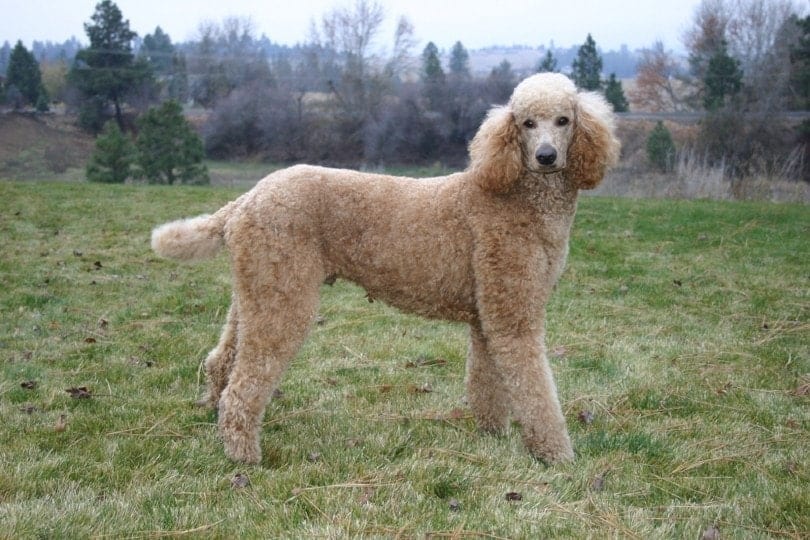Just because someone suffers from dog allergies doesn’t guarantee they’ll hate dogs. Many allergy sufferers couldn’t imagine a life without dogs, leaving them wondering if there’s something they can do to alleviate the suffering they experience when around their beloved family friends.
Unfortunately, Bernese Mountain Dogs are not hypoallergenic. These dogs will trigger dog allergies in most sufferers and exposure to them will usually result in an epinephrine injection in those with severe or life-threatening dog allergies.
What Causes Dog Allergies?
Dog allergies are caused by sensitivity in the immune system triggered by the introduction of the Can f 1 protein that is present in dogs’ saliva, skin cells, and urine. This protein is harmless to humans but to people with dog allergies, the immune system acts as if the protein is an invading pathogen and begins to attack it and release hormones associated with pathogen destruction called histamines.
These histamines cause dog-allergy sufferers to become itchy, break out in hives, become congested, and have runny noses. Those with severe dog allergies may even experience swelling and narrowing of the airways which can cause them to go into cardiac arrest if left untreated.

The Myth of Hypoallergenic Dogs
With the growth of dog and cat-owning families exploding worldwide, many allergy sufferers are on the sidelines of their pet-owning friends’ joys. More recently, we’ve seen an increase in research and breeding of dog and cat breeds touted as “hypoallergenic,” but before you buy one it’s good to have all the necessary knowledge to make an informed decision about what dog you plan to purchase.
The reality is that there is no such thing as a 100% hypoallergenic dog. All dogs produce and shed the Can f 1 protein, even if they do so in lower amounts. Those who suffer from mild to moderate allergies may be able to live with dogs that are hypoallergenic, but many moderate to severe allergy sufferers will still react to hypoallergenic dogs.
Dogs labeled as hypoallergenic are typically low-shedding dogs that don’t spread their dander around the house by shedding. Since they have a low molting rate, the dander from their skin cells and saliva isn’t dropped off around the house when they lay down, run around, or otherwise live in the space.
However, not all “hypoallergenic” dogs shed fewer Can f 1 proteins than other dog breeds. Since some of the “hypoallergenic” dogs achieve their low Can f 1 indexes by keeping the proteins on their body instead of shedding them with their fur, touching hypoallergenic dogs may still produce a severe reaction in some allergy sufferers.
What Dogs are Considered Hypoallergenic?
Poodles

Poodles are one of the most common hypoallergenic dogs you’ll see around. They maintain a high popularity rating with the American Kennel Club and their popularity is thought to only increase with the high amount of allergy sufferers looking to become dog owners.
This hypoallergenic label is often passed down from the poodle to its most common crossbreeds, the Labradoodle and Goldendoodle, but it’s critical to ensure that the dog you’ve chose will suit your needs if you decide to get one of these crossbreeds, as the Labrador and Golden Retrievers are not considered hypoallergenic and the dog may shed more Can f 1 proteins than the average poodle.
Schnauzer

Standard, Miniature, and Giant Schnauzers are all considered hypoallergenic. They’re also great watchdogs for any anxious pet parents who find themselves feeling nervous at night. While Miniature Schnauzers may seem like they wouldn’t be suited to working, they were bred from the Schnauzer lines which focused on guard work.
Bichon Frise

The Bichon Frise is another great option for pet parents who are looking for a low-shedding dog that won’t trigger their allergies. It’s important to recognize that the Bichon Frise has a relatively average Can f 1 index. Allergy sufferers may not react to the environment that the Bichon Frise lives in but will likely still react if they try to pet or play with the dog.
Final Thoughts
With more than 20% of American people being allergic to dogs, it makes sense that hypoallergenic dogs are the new craze. Unfortunately, Bernese Mountain Dogs aren’t hypoallergenic, so they won’t be safe in the home of a severe allergy sufferer. Still, there are plenty of options for prospective dog owners who want a hypoallergenic dog that won’t trigger your allergies!
Featured Image Credit: Pixabay














